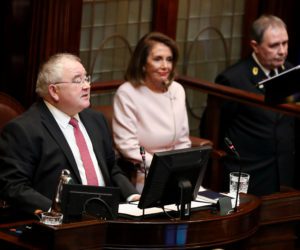The FCA’s decision to close the investigation of the managers who oversaw the collapse of HBOS, announced on 26 August, leaves a particularly bitter taste in the mouth.
We have got used to the UK regulator’s limp wrist in dealing with those that oversee poorly regulated institutions – how many managers have been taken to task for their failures in the thirty years between the collapse of BCCI and the collapse of L&CF– but in the case of HBOS they had both warning of the problem in advance of the crash and ample evidence of the failings soon afterwards.
And yet their response was painful, indeed shameful.
It is a tale of investigations not acted upon and criticism not rebutted. Many will see it as incompetence, but others see it as testimony to a self-serving regulator whose first instinct is to protect its own.
The story goes back to 2002 when the then Financial Services Authority (the predecessor of the FCA) examined the bank (an unhappy merger of Halifax, a building society, and Bank of Scotland, an aggressive retail bank) and warned about failings in its control infrastructure. It hired PWC to carry out a review.
Two years later the regulator questioned the authority of the group’s risk function which needed to be strengthened.
Little action was taken and another two years later, in 2006, the regulator wrote to the bank warning that its growth strategy posed risks to the whole group and that “these risks must be managed and mitigated”.
The financial crisis of 2008 exposed the magnitude of the lack of risk control and the bank had to be rescued by Lloyds TSB. The Government was forced to pump £17 billion into the merged bank to protect its balance sheet.
The tide had gone out, as the expression goes, exposing numerous skeletons and bad lending.
The FSA was stirred into action in 2009 and began an investigation of the extent of the responsibility of bank’s management for the collapse.
This bore some fruit in 2012, when a ‘final notice’ was served on Peter Cummings, the head of the bank’s corporate banking division and he was fined £500,000.
Its other senior managers were allowed to continue working in the City.
A committee of MP’s cried foul about the quality of the regulation of HBOS in 2015, saying it was an “accident waiting to happen” and this was followed by a report by a leading barrister into the ‘”reasonableness of the scope of the FSA’s enforcement investigations in relation to the failure of HBOS”.
Its attention focused on the regulator’s decision to leave in place the management who had presided over bank’s failure.
The Treasury select committee of the House of Commons followed this up with a report on the HBOS reports.
By this time, the regulator had changed its name from the Financial Services Authority to The Financial Conduct Authority, but the new agency was no more resolute in its ability to grasp the HBOS nettle.
One of the responsible (and much criticised) managers showed some accountability by handing in his knighthood and taking a cut in his pension.
The next investigation of what was now becoming ancient history began in 2016, when the FCA and the PRA started to jointly investigate whether the managers tarred with the HBOS brush should indeed be barred from the industry.
They examined no less than two million documents, according to their report, before concluding in August (a full six years later) that they had not found the evidence to act.
“The Authorities’ independent decision-makers reviewed the matters under investigation and have each determined that no enforcement action should be taken against these former HBOS senior managers. These investigations have therefore been closed.”
The circumstances of the announcement, made on the last day of summer on a Friday afternoon, speaks volumes about the ignominious lack of regulation that not only left the British taxpayer with a multi-billion bill but allowed those who were comprehensively exposed as responsible for the failure to carry on their careers without scarcely a stain.
For a scandal that immersed a Scottish bank, this was a very British conclusion.
Share this on:
Follow us on:









